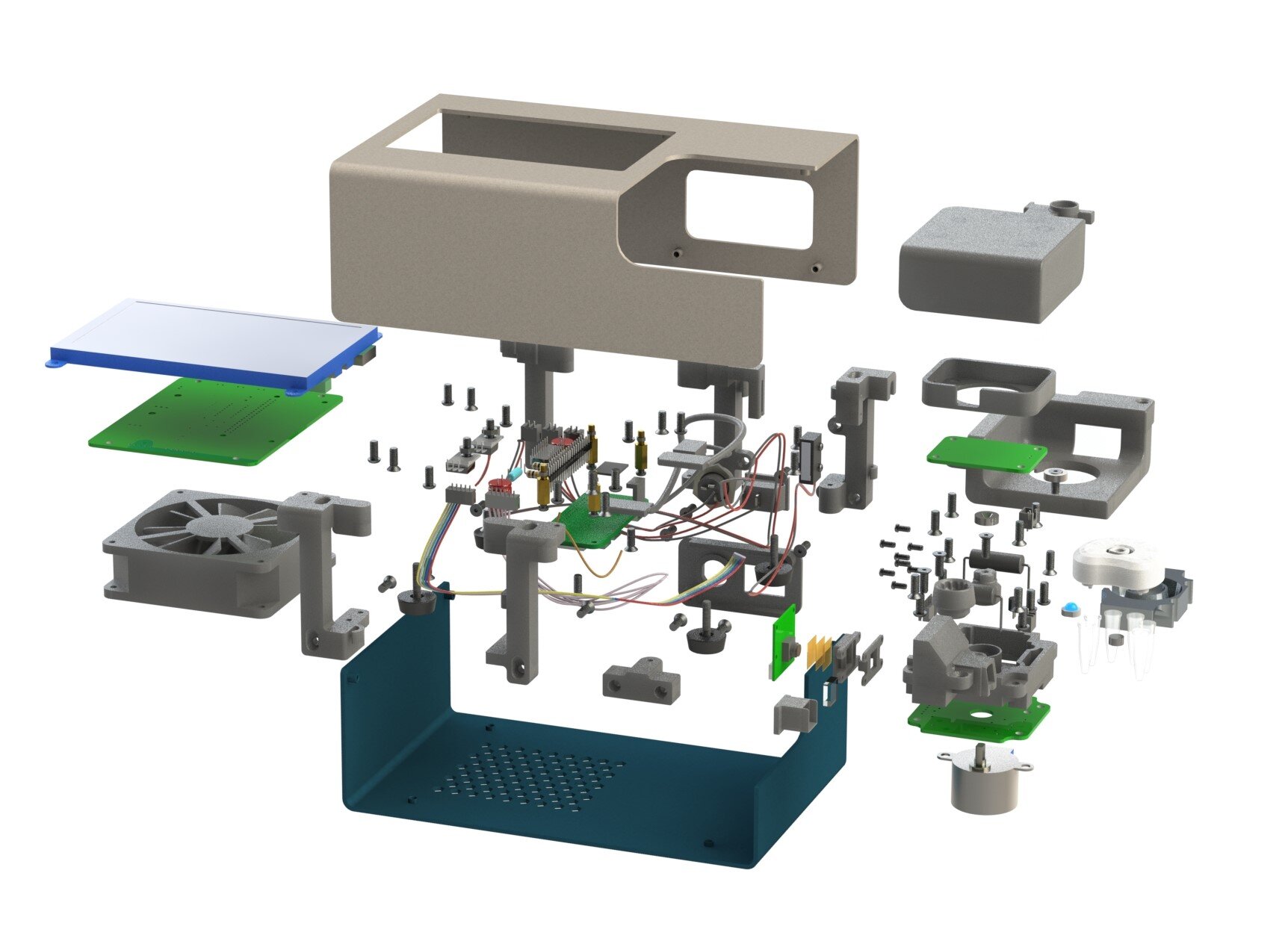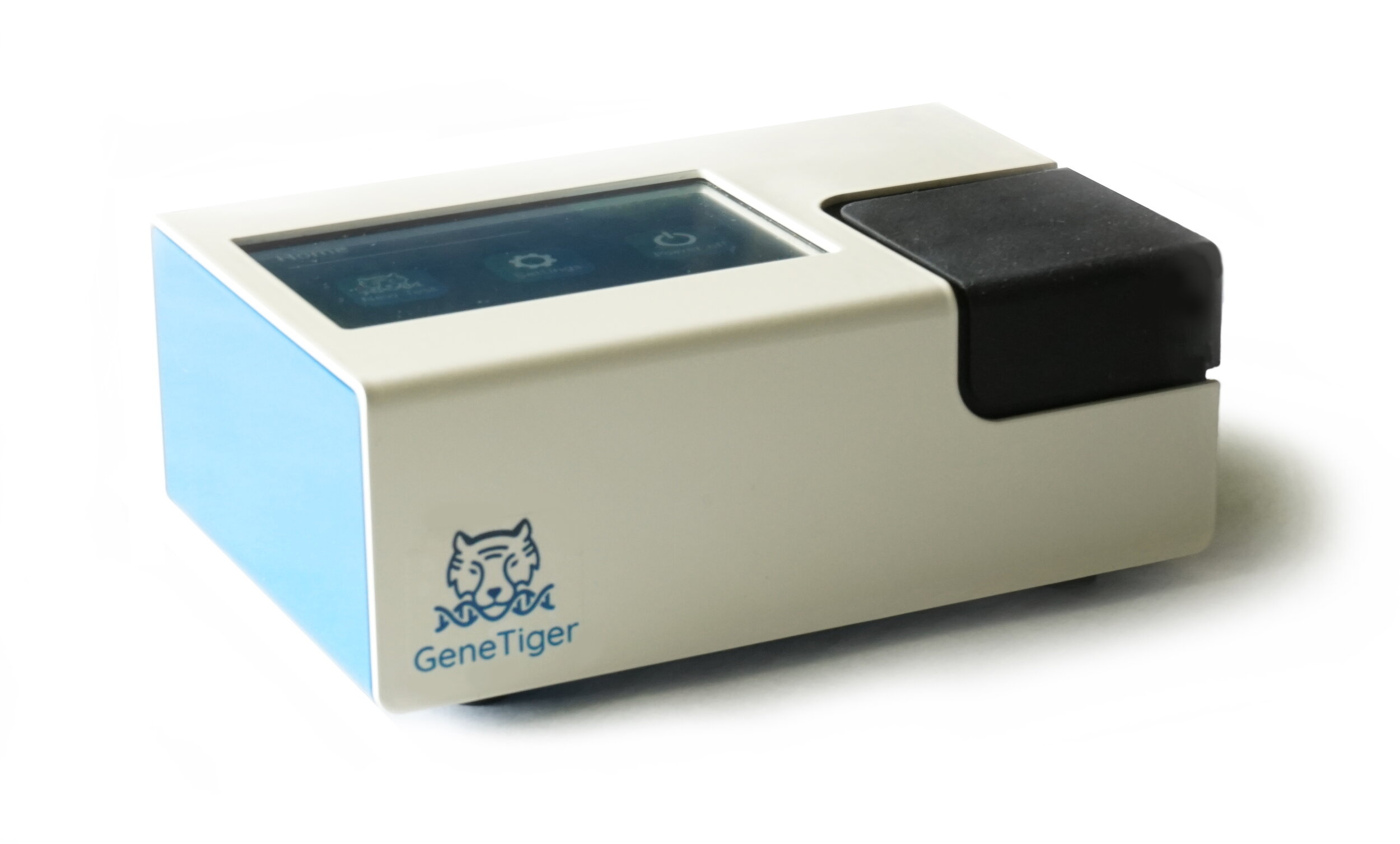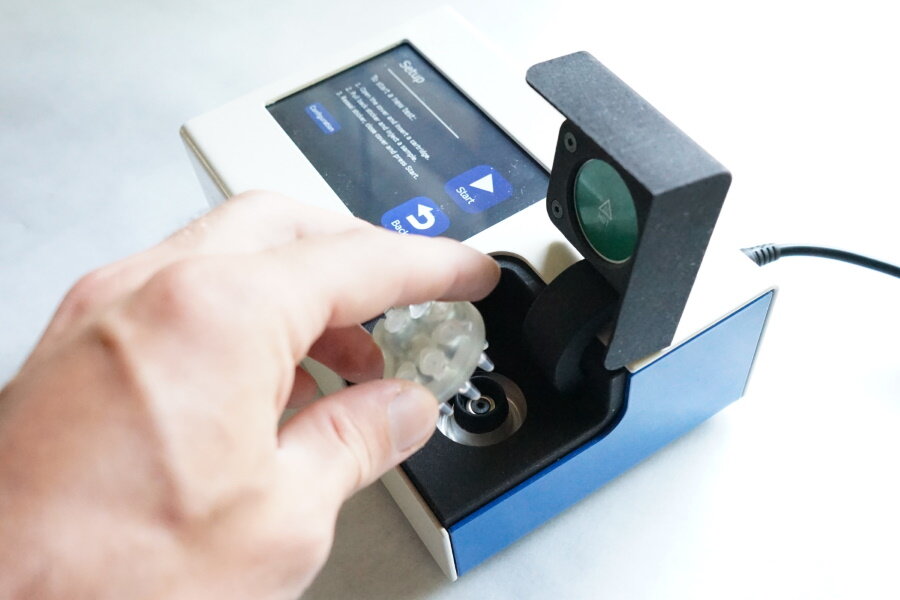Meet Alex Kashkin: UT Student by Day, Local Austin Entrepreneur by Night
Published by Aly Ladak on January 12, 2021:
As the ongoing SARS-CoV-2 pandemic has led to a flurry of behind-the-scenes diagnostic research activity at UT Austin, one undergraduate and his ingenuity have been instrumental in their contributions to recent scientific developments at the University. Meet Alex Kashkin: founder of GeneTiger, a company that produces inexpensive, point-of-care genetic testing devices that can be operated by minimally-trained users to run various diagnostic assays. According to Alex, even children have been able to use the device correctly (without reading the instructions)! UT student by day, local Austin entrepreneur by night, Alex has been helping push forward the genetic testing industry.
Alex first entered the genetic testing realm when he joined Fabrico Technology at the request of current CSO Joseph Oleniczak (his former high school teacher). At this point in time, the Ellington Lab was working with Fabrico to develop diagnostic tests. The lab already possessed assays that worked in a variety of applications (including the detection of pathogens, contaminants in water, and the identification of biological species) but needed a device to make the assays scalable and easily distributable.
According to Dr. Andy Ellington, Alex was brought on board at Fabrico to help make this device and spent his first year at Fabrico prototyping a device that could execute lab-developed LAMP-OSD assays for detecting E. coli in water samples. Spending hours at the University’s MakerSpace (now Texas Inventionworks) while creating the initial prototypes, Alex realized that the conventional analog photodetectors used to record assay fluorescence were not simple to use and could be improved. Leveraging modern concepts in computational science and additive manufacturing, Alex invented a machine-learning approach for characterizing photographic assay outputs, bypassing the cumbersome elements of the previous iterations while still providing clinically-relevant results.
After formalizing this intellectual property, Alex founded GeneTiger in 2019 to develop a manufacturable version of his device and commercialize it. Rising to the challenge of developing a full-fledged product from his prototype, Alex redesigned the device multiple times to reduce costs, worked with overseas manufacturers to set up supply chains, and conducted trial series production runs of a few actual devices to further refine the product.
When the pandemic hit, Alex immediately began working with the Ellington Lab to develop assays for COVID-19 on GeneTiger, and by the end of summer, he had several functioning devices ready for deployment. As the University began preparing for the socially-distanced Fall 2020 and Spring 2021 semesters, Alex helped set up coronavirus self-testing at UT and helped many researchers begin running their SARS-CoV-2 assays on GeneTiger. Alex would like to thank Dr. Sanchita Bhadra for her assay development, as GeneTiger would not be possible without her help. Currently, GeneTiger is routinely being used to protect our workforce and Alex plans on pursuing a post-graduate mechanical engineering degree. We wish Alex the best of luck with his future endeavors!




